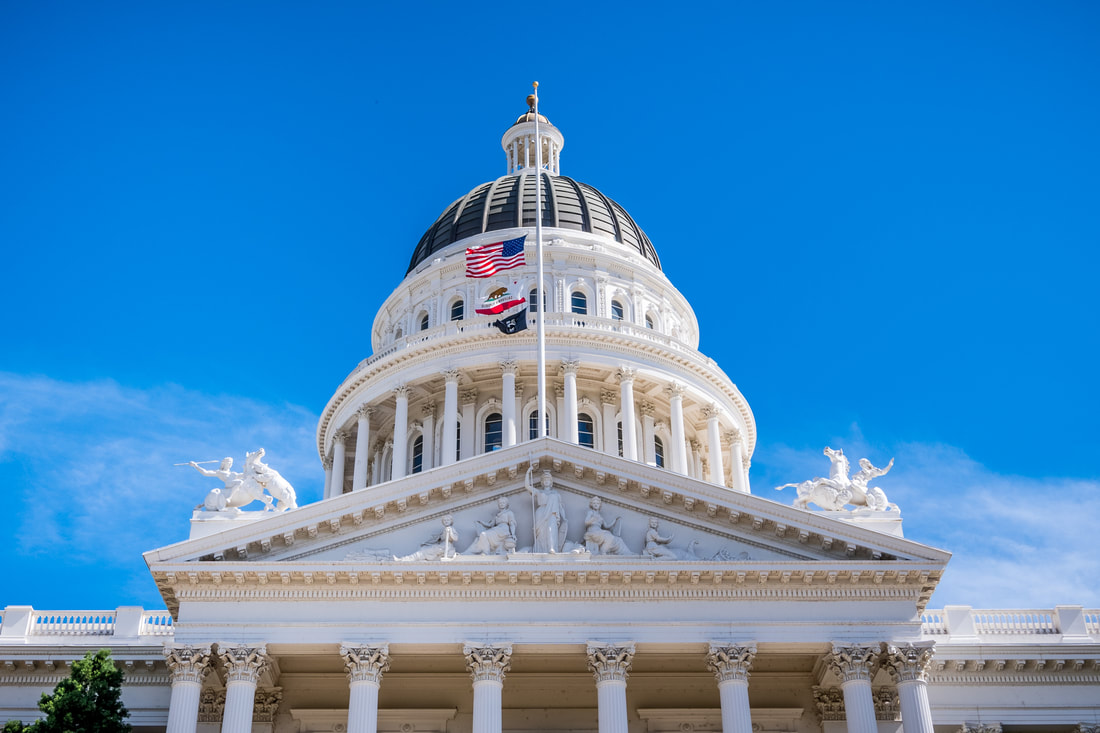|
2023 was a big year for California’s state legislature. From crime and healthcare to housing and schools, California’s legislators passed a bevy of new laws, including many that will significantly impact workers. Though some of these laws won’t be effective for a few more months, many have already taken effect. We discuss the most significant ones below.
Crackdown Against Noncompete Agreements California has long been a leader in the fight against noncompete agreements, which restrain worker mobility and suppress wages. With the passage of SB 699, however, the state has taken its fight to another level, making most noncompete agreements unenforceable “regardless of where and when the contract was signed” and “regardless of whether the contract was signed and the employment was maintained outside of California.” In practice, this means that out-of-state companies intending to enforce noncompete agreements against employees or former employees seeking work in California will be unable to do so, barring some exceptions. Unpaid Leave for Reproductive Losses SB 848 allows California’s workers to take up to five days of unpaid leave following a “reproductive loss event.” The law defines such events as “the day or, for a multiple-day event, the final day of a failed adoption, failed surrogacy, miscarriage, stillbirth, or an unsuccessful assisted reproduction.” The law also prohibits employers from retaliating against employees for taking reproductive loss leave. More Paid Sick Leave Due to the passage of SB 616, California’s workers now have the right to accrue and use up to five days (or 40 hours) of paid sick leave. The state’s workers were previously guaranteed a minimum of three paid sick leave days. Protections for Cannabis Users AB 2188 was actually passed after the 2022 legislative session but did not take effect until this month. The law prohibits employers from discriminating against individuals on the basis of cannabis use “off the job and away from the workplace,” with some exceptions. Similarly, a law from this past legislative session, SB 700, prohibits employers from requesting information from job applicants about their prior use of cannabis. The law also prohibits employers from using information obtained from an applicant’s criminal history about their prior cannabis use, with some exceptions. For more on the latest developments in employment law, visit our blog here. If you believe your employer may have violated workplace laws, click here to get in touch with our office.
0 Comments
Last Saturday was the deadline for California Governor Gavin Newsom to either sign or veto the roughly 1,000 bills that made it to his desk. Below is a recap of some of the most notable employment bills that the Governor signed or vetoed.
Higher Minimum Wages Governor Newsom signed a pair of bills, AB 1228 and SB 525, that set higher minimum wages for workers in the fast food and healthcare industries. Under AB 1228, fast-wood workers’ minimum wage will be bumped to $20 an hour in April. Hundreds of thousands of healthcare workers in the state will see their minimum wage eventually increased to $25 an hour under SB 525. Employers Lose a Delay Tactic SB 365 allows employment lawsuit proceedings to move forward, rather than pause, when defendants appeal orders denying a request to compel arbitration. Governor Newsom signed the bill, effectively undercutting a tactic that sometimes-allowed employers to delay cases for years at a time. More Paid Sick Days Starting next year, California’s workers will be entitled to at least five days of paid sick leave, up from the current minimum of three days, as a result of Governor Newsom signing SB 616. Family Caregiver bill Nixed In a defeat for employees, the Governor vetoed AB 524, a bill that would have added “family caregiver status” to the list of protected characteristics that employers cannot consider when making employment decisions such as hiring and firing. No Unemployment Benefits while on Strike SB 799 would have allowed workers to collect unemployment insurance benefits while on strike. Governor Newsom vetoed the bill, citing the multi-billion-dollar debt that California’s unemployment insurance program incurred to keep benefits flowing during the pandemic. To see what other important employment bills were signed and vetoed by the Governor, click here. Significant employment bills make their way to Governor Newsom’s desk ahead of crucial deadline9/15/2023  Thursday, September 14th marked the deadline for California’s two legislative bodies – the state assembly and state senate – to pass bills. Bills passed by both bodies will now head to Governor Gavin Newsom’s desk, where the governor will have one month to determine which bills to sign into law. The employment bills Mr. Newsom will consider for approval run the gamut, from legislation on caregiver discrimination to bills increasing paid sick days. Below is a recap of the bills at the governor’s desk that figure to have the greatest impact on California’s workers if approved. Family Caregiver Discrimination – AB 524 AB 524 would amend the state’s Fair Employment and Housing Act (FEHA) by adding “family caregiver status” to the list of protected characteristics that employers cannot take into account when making employment decisions such as hiring and firing. Consideration of this bill comes at a critical time. Caregivers are the fastest growing workplace identity group and may make up us much as 73% of the American workforce. More than 63 million Americans care for at least one child, and 40.4 million Americans provide unpaid care to someone aged 65 years or older. The pandemic’s aftermath and America’s rapidly aging population have only exacerbated the challenges faced by caregivers. Arbitration Appeal Delays – SB 365 When trial courts find that a forced arbitration agreement is invalid, employers frequently use delay tactics, such as filing an appeal, that can effectively pause a case for years at a time. If signed into law, SB 365 would undercut such tactics and allow employment lawsuits to move forward when defendants file appeals involving a petition to compel arbitration. WARN Act Expansion – AB 1356 California’s Worker Adjustment and Retraining Notification (WARN) Act protects employees by requiring employers to give a 60-day notice to affected employees before a plant closing or mass layoff. AB 1356 would expand the WARN Act’s protections by requiring employers to provide employees with 75 days of advance notice. It would also prohibit employers from requiring employees to waive their rights by signing onerous severance agreements with releases and non-disparagement provisions in exchange for the payment of back wages. The bill was inspired by the massive layoffs at tech companies like Google and Meta, particularly Elon Musk’s alleged mishandling of layoffs at the company formerly known as Twitter. Additional Paid Sick Days- SB 616 SB 616 would require California’s employers to provide workers with five days of paid sick leave instead of the current allotment of three. Increasing the number of paid sick will reduce the frequency at which workers, particularly low-income workers, are forced to make difficult decisions between foregoing pay and going to work sick. If signed into law, the bill is also expected to strengthen public health protections. According to the Washington Center for Equitable Growth, “paid sick leave guarantees are seen by many public health experts as one of the strongest tools in stopping the spread of infectious diseases.” For a list of other employment bills heading to Mr. Newsom’s desk, click here. The governor will have until October 14th to sign bills from this year’s legislative session into law.  Law.com quoted Lauren Teukolsky in a recent article discussing a California appellate court’s ruling in Wood v. Kaiser. The case holds that workers can use the state’s Private Attorneys General Act (PAGA) to enforce California’s paid sick leave law, (AB 1522). The law requires employers to provide employees with 24 hours of paid sick leave every year. Before the Wood case was decided, it was unclear whether employees could enforce their right to paid sick leave by suing their employer, or whether only the State could bring suit to enforce the law. This is because the sick leave law does not contain a private right of action but only permits enforcement by the State. However, PAGA allows employees to stand in the shoes of the State to bring enforcement actions against employers. Despite this, several lower courts had previously ruled that workers may not use PAGA to enforce the paid sick leave law, leaving workers without any recourse. The Court of Appeals decision in Wood v. Kaiser effectively overrules those decisions, and represents a victory for workers. The article states: “Lauren Teukolsky, an employee-side plaintiffs attorney with Teukolsky Law, said the decision appears to be the first by a California appellate court that specifically addresses the availability of PAGA penalties under the paid sick-leave law. ‘We are all celebrating this victory,’ Teukolsky said in an interview.” Ms. Teukolsky has represented workers for over two decades. Her commentary on the latest developments in employment law has been featured in articles by Bloomberg Law, Law360, and the Los Angeles Times. To read Law.com’s article in its entirety, click here. If you believe your employer may be violating California’s sick-pay laws, click here to get in touch with Teukolsky Law. On September 10, 2020, Governor Gavin Newsom signed AB 1867. Passage of the bill means that millions of Californians will now be eligible for up to 80 hours of supplemental paid sick leave during COVID-19. While many workers were already given paid sick leave under the federal FFCRA (Families First Coronavirus Response Act), this bill expands paid sick leave to employees working for private employers with more than 500 U.S.-based workers, and all health care providers and emergency response workers not covered under FFCRA. The bill also codifies existing paid sick leave provisions for food service workers.
To qualify for the expanded leave, the employee must perform work outside their home or residence and satisfy one of the following conditions: 1) be advised by a medical provider to quarantine due to coronavirus-related concerns; 2) due to COVID-19 concerns, not be permitted to work; or 3) be under a federal, state, or local isolation or quarantine order. The legislation will be enforced through the Labor Commissioner’s office; there is no private right of action to sue the employer directly in court. New regulations such as these are essential for containing the spread of the coronavirus because they create a pathway for workers to stay home and not risk their health or their income. Keeping sick workers at home also stops the spread of COVID-19 to the general public. We are grateful to live in California, which was recently ranked #1 by Oxfam in terms of worker protections in a study entitled, "Best States to Work During COVID-19." Hopefully, California will continue to lead the way in worker’s rights legislation during the pandemic. If you believe that your employer has failed to provide you with paid sick leave or you have any questions about your rights during the COVID-19 crisis, contact Teukolsky Law today for a free consultation. |
AuthorLauren Teukolsky is the founder and owner of Teukolsky Law, A Professional Corporation. Archives
June 2024
Categories
All
|
Teukolsky Law, A Professional Corporation, represents clients throughout California. Ms. Teukolsky is admitted to practice in the State of California, as well as the United States Supreme Court, Ninth Circuit Court of Appeals, Northern District of California and Central District of California. Disclaimer.
Copyright © 2017
Copyright © 2017

 RSS Feed
RSS Feed